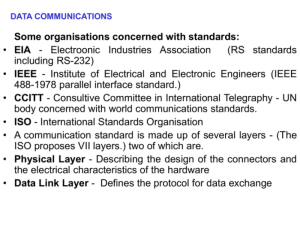
Embark on a journey through the world of computer programming with the treasure trove of knowledge found in free e-books. Dive into this captivating realm where learning knows no bounds!
Are you ready to discover the endless possibilities that free e-books offer for enhancing your programming skills? Let’s explore together!
Free e-books for computer programming
Free e-books for computer programming are a valuable resource for individuals looking to enhance their coding skills without breaking the bank. These e-books cover a wide range of programming languages and topics, making them accessible to beginners and experienced coders alike.
Popular Websites Offering Free E-books
- GitHub: GitHub is a popular platform for open-source projects, and many developers share free e-books on programming here.
- Free Programming Books: This website offers a vast collection of free e-books on various programming languages and topics.
- Google Books: Google Books also has a section dedicated to free e-books on computer programming.
Benefits of Using Free E-books
- Cost-effective: Free e-books eliminate the need to spend money on expensive programming books, making learning more accessible.
- Wide variety: Free e-books cover a wide range of programming languages and topics, allowing individuals to explore different areas of interest.
- Community collaboration: Many free e-books are contributed by developers and experts in the field, providing valuable insights and real-world examples.
Content Quality Comparison
While paid e-books may offer more comprehensive content and in-depth analysis, free e-books can still provide valuable information and practical examples for learners. The quality of content in free e-books may vary, but with proper research and reviews, learners can find high-quality resources for programming.
Leveraging Free E-books for Skill Enhancement
- Supplemental learning: Students can use free e-books to supplement their formal education and gain practical insights into programming concepts.
- Project-based learning: Free e-books often include project-based examples that allow students to apply their knowledge in real-world scenarios.
- Continuous learning: With the abundance of free e-books available, students can continue learning and exploring new programming languages and techniques at their own pace.
Electronics and Electrical
When it comes to computer programming, understanding electronics and electrical principles can greatly enhance a programmer’s skills and knowledge. Let’s delve into the relationship between electronics and computer programming, and how this understanding can benefit programmers.
Integration of Electronics and Computer Programming
Electronics and computer programming go hand in hand, especially in the development of hardware and embedded systems. Here are some examples of how knowledge of electronics can benefit computer programmers:
- Understanding circuit design: Knowledge of electronics helps programmers work closely with hardware engineers to develop efficient circuit designs for computer systems.
- Debugging hardware issues: With a basic understanding of electronics, programmers can troubleshoot and debug hardware-related problems that may affect software performance.
- Embedded systems development: Electronics knowledge is essential for programming embedded systems, where software interacts closely with hardware components.
Electrical Principles and Programming Efficiency
Knowledge of electrical principles can significantly improve programming efficiency by optimizing power consumption, enhancing performance, and ensuring hardware compatibility. Here’s how understanding electrical principles can benefit programmers:
- Power management: By understanding electrical principles, programmers can develop software that efficiently manages power consumption, prolonging battery life in devices.
- Performance optimization: Knowledge of electrical concepts can help programmers optimize software performance by aligning it with the capabilities of the hardware.
- Hardware compatibility: Understanding electrical principles allows programmers to ensure that software is compatible with various hardware components, reducing compatibility issues.
Integration of Electronics in Computer Hardware Design
Electronics and electrical concepts play a crucial role in computer hardware design, influencing the development of processors, memory systems, input/output devices, and more. Here’s how electronics and electrical principles are integrated into computer hardware design:
- Signal processing: Electronics principles are used to design circuits that process signals efficiently, enhancing the performance of hardware components.
- Component integration: Electrical concepts guide the integration of various hardware components, ensuring they work together seamlessly in a computer system.
- Reliability and safety: Electronics knowledge helps in designing hardware that is reliable, safe, and compliant with industry standards for electrical systems.
Computer Repair and Consulting
As a programmer, having computer repair skills is essential to ensure that your work is not disrupted by technical issues. In addition, consulting services can provide valuable insights and guidance for programmers looking to optimize their systems and workflows.
Importance of Computer Repair Skills for Programmers
- Being able to troubleshoot and fix common computer issues can save time and prevent delays in your programming projects.
- Understanding hardware components and software configurations allows programmers to maintain and upgrade their own systems efficiently.
- Having basic computer repair skills can also help programmers identify and resolve issues independently, without the need for external assistance.
Tips for Troubleshooting Common Computer Issues
- Ensure all cables and connections are secure and properly connected.
- Restart your computer to resolve software glitches and refresh system processes.
- Run diagnostic tools to identify hardware problems and software conflicts.
- Update drivers and software to ensure compatibility and performance optimization.
Role of Consulting in Computer Programming
- Consulting services offer expert advice on system architecture, software development, and project management to help programmers achieve their goals efficiently.
- Consultants can provide valuable insights and recommendations for optimizing workflows, improving code quality, and implementing best practices in programming.
- They can also offer guidance on hardware and software selection, integration, and maintenance to ensure smooth operation of programming environments.
Benefits of Consulting Services for Programmers
- Access to specialized expertise and industry knowledge to address complex technical challenges and enhance programming skills.
- Increased efficiency and productivity through tailored solutions and strategic guidance from experienced consultants.
- Opportunities for professional growth and skill development by learning from consultants with diverse backgrounds and perspectives in the field of computer programming.
Data Communication
Data communication is the process of exchanging data between two devices through a transmission medium such as cables, wireless signals, or optical fibers. In programming, data communication plays a crucial role in enabling devices to interact with each other and share information efficiently.
Methods of Data Communication in Programming
In computer programming, there are various methods of data communication used to transfer data between devices. Some of the common methods include:
- Serial Communication: Involves sending data one bit at a time over a communication channel.
- Parallel Communication: Involves sending multiple bits simultaneously over multiple channels.
- Network Communication: Involves data transmission over a network, connecting multiple devices.
Data Communication Protocols Influence
Data communication protocols are a set of rules that define how data is formatted, transmitted, received, and acknowledged between devices. These protocols greatly influence programming practices by ensuring data integrity, security, and efficient communication. Some examples of popular data communication protocols include TCP/IP, HTTP, and FTP.
Data Communication Challenges in Programming
Programmers often face challenges in data communication that can impact the performance and reliability of their applications. Some common challenges include:
- Latency: Delays in data transmission affecting real-time communication.
- Bandwidth Limitations: Restrictions on the amount of data that can be transmitted at a given time.
- Data Loss: Occurs when data packets are not successfully transmitted or received.
Computers E-Books

When it comes to computers, e-books are a valuable resource for learning and expanding knowledge in various areas beyond just programming. Let’s explore the world of e-books dedicated to computer-related topics and how they can enhance our understanding of technology.
Exploring Various E-Books on Computers
- Computer Hardware and Networking: E-books covering topics like hardware components, networking protocols, and troubleshooting techniques can help enthusiasts and professionals alike understand the inner workings of computer systems.
- Operating Systems and Software: Dive into e-books that delve into popular operating systems like Windows, macOS, and Linux, as well as software applications for productivity, creativity, and security.
- Cybersecurity and Ethical Hacking: Explore e-books that focus on cybersecurity fundamentals, ethical hacking techniques, and strategies for protecting digital assets from cyber threats.
The Role of E-Books in Disseminating Computer Knowledge
E-books play a crucial role in disseminating computer knowledge by providing easily accessible and up-to-date information to a global audience. With the convenience of digital formats, e-books can reach a wider audience and be updated more frequently than traditional print books, ensuring readers have access to the latest developments in the ever-evolving field of technology.
Benefits of Reading E-Books vs. Print Books in Computers
- Portability and Accessibility: E-books can be carried on devices like smartphones, tablets, and e-readers, allowing readers to access their digital library anytime, anywhere.
- Interactive Features: E-books often include interactive elements like hyperlinks, multimedia content, and search functionalities, enhancing the learning experience and making it easier to navigate complex topics.
- Environmentally Friendly: By opting for e-books over print books, readers can contribute to reducing paper waste and environmental impact, making it a more sustainable choice for acquiring knowledge.
Personal Experiences with E-Books in Computer Topics
“I have found e-books to be a convenient and cost-effective way to explore various computer-related topics at my own pace. The ability to search for specific terms, bookmark important sections, and adjust font sizes for easy reading has truly enhanced my learning experience in the digital realm.”
Graphics and Multimedia
Graphics and multimedia play a crucial role in enhancing user experience and making applications visually appealing. The relationship between computer programming and graphics/multimedia is intertwined, as programming languages are used to create, manipulate, and display graphical elements and multimedia content.
Programming Languages for Graphics and Multimedia
Programming languages like Java, C++, Python, and JavaScript are commonly used to develop graphics and multimedia applications. These languages offer libraries and frameworks specifically designed for handling graphics, animations, audio, and video.
- Java: Java is widely used for developing interactive multimedia applications due to its platform independence and rich graphical capabilities.
- C++: C++ is popular for game development and high-performance graphics applications, leveraging its speed and efficiency.
- Python: Python’s simplicity and versatility make it suitable for creating multimedia applications, data visualizations, and interactive graphics.
- JavaScript: With the rise of web-based multimedia content, JavaScript is essential for creating dynamic graphics and interactive media on websites.
Popular Software for Graphics and Multimedia Programming
Software like Adobe Photoshop, Adobe Illustrator, Blender, and Unity are widely used for graphics and multimedia programming. These tools provide a range of features for creating visual effects, animations, 3D models, and interactive applications.
- Adobe Photoshop: Known for its image editing capabilities, Photoshop is used for creating and editing graphics for various multimedia projects.
- Blender: Blender is a powerful tool for 3D modeling, animation, and rendering, popular among game developers and animators.
- Unity: Unity is a game development platform that supports 2D and 3D graphics, offering features for creating interactive multimedia experiences.
Career Opportunities in Graphics and Multimedia Programming
Professionals in graphics and multimedia programming can pursue careers as graphic designers, multimedia developers, game developers, UI/UX designers, and 3D artists. With the increasing demand for visually appealing content in various industries, there is a growing need for skilled individuals who can create engaging graphics and multimedia applications.
Computers Hardware
When it comes to computer programming, understanding the hardware components of a computer system is crucial. Hardware plays a vital role in supporting software and programming tasks, impacting the overall performance and efficiency of the programming process. Let’s delve into the essential components of computer hardware and why programmers should have a good grasp of them.
Essential Components of Computer Hardware
- The Central Processing Unit (CPU): Often referred to as the brain of the computer, the CPU is responsible for executing instructions and performing calculations.
- Random Access Memory (RAM): This is the temporary storage space that allows the computer to access data quickly for processing.
- Hard Drive: The hard drive stores permanent data on the computer, including the operating system, software applications, and user files.
- Motherboard: The motherboard acts as the central hub connecting all the hardware components of the computer.
Role of Hardware in Supporting Software and Programming Tasks
Hardware provides the necessary resources and processing power for software applications to run smoothly. A well-functioning hardware system can enhance the speed and efficiency of programming tasks, ultimately improving the overall productivity of programmers.
Importance of Understanding Computer Hardware for Programmers
- Optimizing Performance: Knowledge of hardware components enables programmers to optimize their code for better performance on specific hardware configurations.
- Troubleshooting: Understanding hardware helps programmers diagnose and troubleshoot issues that may arise during programming, such as compatibility issues or performance bottlenecks.
Tips on Maintaining and Upgrading Computer Hardware
- Regular Maintenance: Keep your hardware components clean and dust-free to prevent overheating and ensure optimal performance.
- Upgrade Strategically: Identify areas where hardware upgrades can provide the most significant performance benefits for your programming tasks.
- Stay Informed: Keep up to date with the latest hardware technologies and trends to make informed decisions when upgrading your computer system.
Final Conclusion

As we conclude this adventure into the realm of free e-books for computer programming, may you continue to unlock the code to success through the valuable resources at your fingertips. Happy coding!
FAQ Compilation
Are free e-books for computer programming reliable sources of information?
Yes, many reputable websites offer high-quality free e-books that can greatly benefit learners in the field of computer programming.
How can students make the most out of free e-books for enhancing their programming skills?
Students can leverage free e-books by dedicating time to read and practice the concepts learned, ensuring active engagement with the material.
What advantages do free e-books provide compared to paid ones in computer programming?
Free e-books offer cost-effective ways to access valuable content, making learning more accessible to a wider audience.
Where can I find popular websites that offer free e-books for computer programming?
Websites like Project Gutenberg, Open Library, and GitHub are known for providing a vast collection of free e-books on computer programming.







